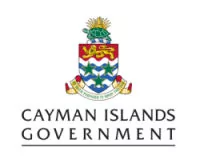Much of the Bill is based on the UK's Criminal Justice Act 1993. It was developed in close consultation with the private financial sector in the Cayman Islands and carefully balances the legitimate rights of the individual to privacy with the need for transparency and disclosure in the public interest of defeating crime.
The legislation builds on the Mutual Legal Assistance Treaty between the Cayman Islands and the US, and the anti-money laundering provisions of the Misuse of Drugs Law passed in 1989.
Key points of the legislation include:
- Making it a criminal offence if a financial services provider fails to report any suspicions he may have that a client has been engaged in or benefited from crime;
- Allowing for an application to be made to the Grand Court for an order restraining criminal proceeds pending prosecution and ultimately confiscation whether they be the contents of a bank account or movable or immovable property;
- Allowing for confiscation orders made in designated countries to be registered in the Cayman Islands and enforced by the Grand Court;
Richard Coles, Cayman Islands' Attorney General said:
"This legislation makes it clear that the Cayman islands is not a place for those who wish to hide illicit proceeds. It will also reassure those legitimate users of the financial services in the Cayman Islands that their business will not be tainted by any illicit proceeds. The Cayman Islands have once again demonstrated our commitment and determination to assist in the fight against international crime."
The British Government is now encouraging other Dependent Territories and Crown Dependencies to follow the Cayman Islands example as soon as possible.
For further information or interviews:
Contact Jacqui Crane at the Cayman Islands Press Office
The content of this article is intended to provide a general guide to the subject matter. Specialist advice should be sought about your specific circumstances.

